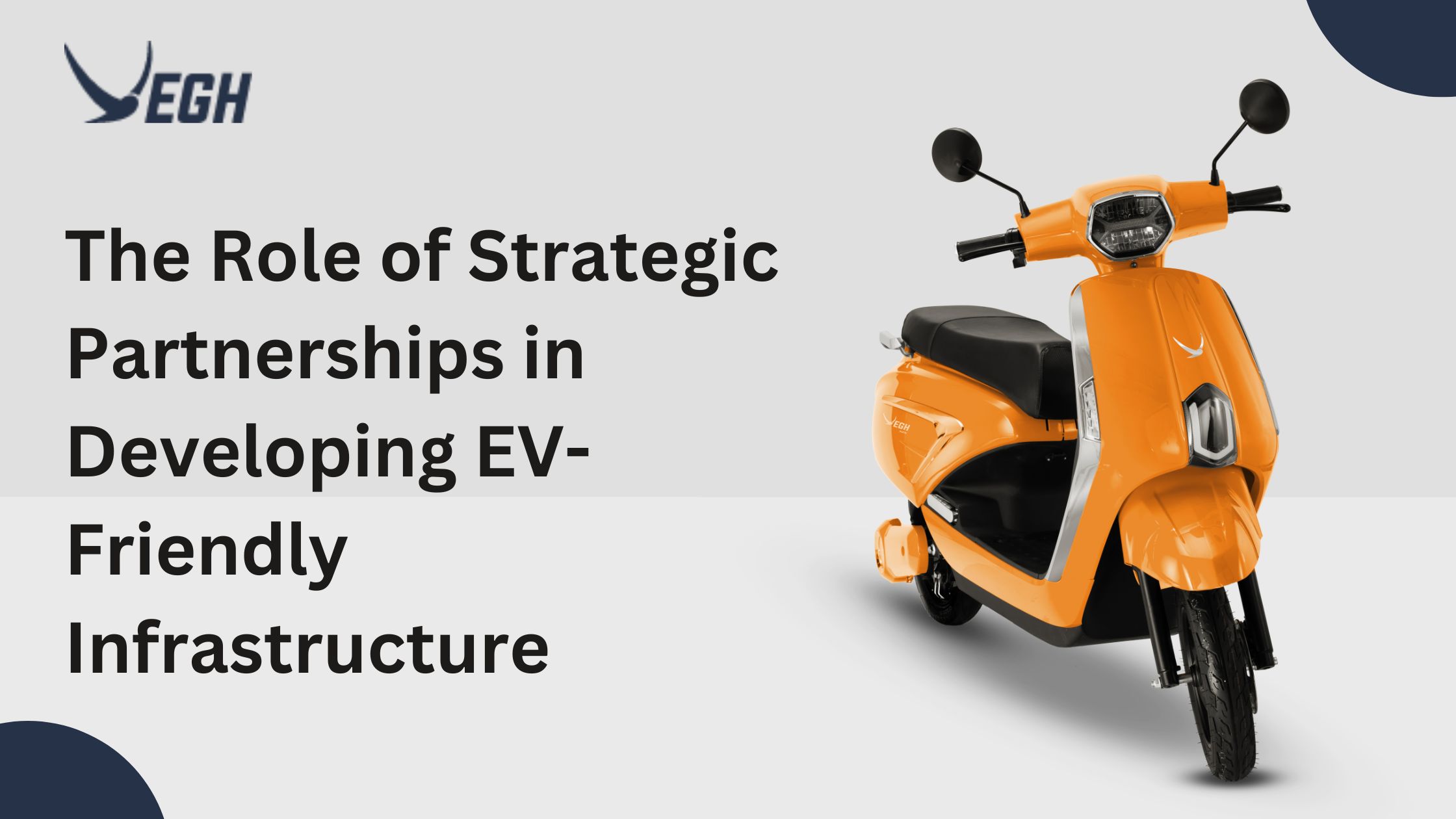
The introduction of electric scooters in India is changing the way we think about transportation, energy use, and environmental sustainability. Governments and organizations are looking for methods to provide EV-friendly infrastructure as EVs gain popularity. Undoubtedly one of the most successful tactics is strategic partnerships. Organizations can design comprehensive plans for developing EV-friendly infrastructure by collaborating with well-known private sector firms, local governments, and nonprofits. It will not only enhance access to charging stations but also cut emissions and improve public health. In this article, we will discuss how strategic partnerships are helping to shape the future of EV-friendly infrastructure development.
As India’s electric vehicle market grows, the need for EV infrastructure development becomes increasingly important. The Indian government has supported the EV market and has taken steps to promote its growth. In 2015, the government released the National Electric Mobility Mission Plan 2020, which aimed to have six to seven million EVs on Indian roads by 2020. However, this goal is unlikely to be met due to a lack of investment and infrastructure.
There are only a handful of public charging stations in India, most of which are located in major cities. This lack of infrastructure is a significant barrier to EV adoption, as consumers are hesitant to purchase EVs without knowing where they can charge them. To encourage EV sales and meet its ambitious goals, the Indian government must invest significantly in developing the necessary infrastructure.
One way that the government can promote EV infrastructure development is through strategic partnerships with private companies. These partnerships can provide the capital necessary to build charging stations and other EV infrastructure. Additionally, these partnerships can help ensure that the infrastructure is built in a way that is convenient and accessible for consumers.
Strategic partnerships will be critical in developing EV-friendly infrastructure in India. With the right partners, the Indian government can invest significantly in EVs and help make them a more mainstream option for Indian consumers.
Strategic partnerships are crucial to developing EV infrastructure. Partnerships between the private sector and the government can create the necessary infrastructure to support electric vehicles. These partnerships can also incentivize people to switch to economical EVs such as electric scooters in India.
The development of electric vehicle infrastructure requires significant investment. The upfront cost of installing charging stations and other infrastructure can be barriers to entry for many companies. Strategic partnerships between the private sector and government can help to overcome this barrier by providing the necessary funding and resources.
Government incentives can also play a role in encouraging people to switch to electric vehicles. Incentives such as tax credits or rebates can make electric vehicles more affordable for consumers. Strategic partnerships between the private sector and government can help to develop these incentives and make them available to consumers.
If we want to achieve an EV-friendly infrastructure, strategic partnerships are essential. By working with other organizations, businesses, and government agencies, we can develop the infrastructure needed to support electric vehicles.
There are a few things that need to be in place before EVs can take off:
Strategic partnerships can help us develop all of these things. For example, by working with utility companies, we can ensure that there is a robust charging network in place. We can also partner with businesses to offer incentives for people to switch to EVs and with government agencies to manage the increased demand on the electricity grid.
Through these partnerships, we can develop an EV-friendly infrastructure that will make it easy for people to switch to basic electric vehicles such as electric scooters in India.
Strategic partnerships are essential in the development of EV-friendly infrastructure. Organizations can share resources and knowledge to create a comprehensive network of public charging locations and other services. It allows for faster EV adoption such as growth in the sales of electric scooters in India, helping to reduce emissions, improve air quality, and ultimately benefit us all. With the right partners on board, any city or region has the potential to become a leader in green energy initiatives through electric vehicle infrastructure development.